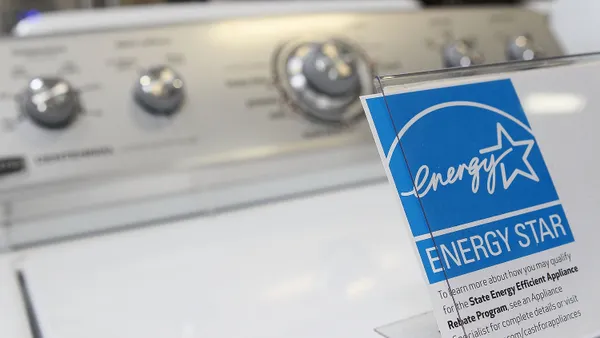The following is a contributed article by Cindy Schonhaut, director of the Colorado Office of Consumer Counsel.
In an Aug. 24 opinion piece titled Utilities response to the pandemic- heads- shareholders win; tails- consumers lose, a former Colorado Public Utilities Commissioner pointed out that the nation’s utility customers are under great stress, no less so in Colorado. But as we continue what is now a national conversation regarding how we continue to weather this economic environment, it’s necessary that we set the record straight on some of the piece’s other assertions.
Let’s start with where we agree: It is true that many customers across the country are experiencing great pain in paying their bills due to the pandemic, compounded by the economic downturn, job losses, political instability and the effects of a warming climate. It is also true that utilities are positioning themselves to mitigate the impacts of COVID-19 on their business and their shareholders. And yes, they will likely seek to benefit from changes to their business model, customer load shifts and regulators’ need to expediently address the consequences of the pandemic for utility consumers.
Concurrent with these efforts by utilities, consumer advocates — in Colorado and across the nation — have been leading the charge to protect utility consumers during this exceptional time, providing the necessary regulatory expertise and indispensable perspective to navigate unprecedented circumstances for customers, utilities and regulators. In Colorado, this is the Office of Consumer Counsel (OCC).
Consumer advocate impacts
Since the state of emergency was declared, the OCC worked hard to drive efforts to stop disconnections, helped write language framing shut-off moratoriums, supported the effort to set conditions for reconnection, pushed for a moratorium on late fees, reconnection fee, and deposit requirements, helped ensure that utilities extend repayment plans, and aided in defining what will be treated as utility bad debt in these circumstances.
Without the efforts of consumer advocates across the country, there is no doubt that hundreds of thousands — if not millions of customers — would have had their electricity or natural gas shut off. This has been the frontline for consumer protection in Colorado and, as a result, consumers in every part of the state are able to rest easy knowing that if they are unable to pay their utility bills due to COVID, they will not face financial ruin.
The former commissioner claims that consumer advocates "treat as a foregone conclusion" the idea that consumers will be on the hook for the consequences of the pandemic, however, this is not the case.
In Colorado, the investor-owned utilities (electric and natural gas) jointly filed a petition in early April seeking Commission approval for special treatment of costs they incurred due to the pandemic, including past due bills that have not been paid in recent months. Through negotiations with the OCC and others, this request was narrowed significantly and resulted in a settlement by all parties that is the subject of the Aug. 24 opinion piece. The OCC stands behind this settlement and the protections it provides for consumers in light of all the circumstances.
The editorial mischaracterizes both the intent and the impact of efforts by consumer advocates, and mistakenly infers that we are kowtowing to the wants of utilities and their shareholders. Nothing could be further from the truth. The OCC takes pride in our work representing residential, small business and agricultural consumers, and we have never been, and will never be, beholden to the utilities.
An aggressive approach
The OCC took an extremely aggressive approach to reviewing and analyzing the utilities’ requests for accounting orders and other assurances. As a direct result of this work, the following provisions of the settlement serve to protect consumers during this extraordinary time.
-
Limit the range and scope of what can be considered "bad debt" in this context. The OCC insisted that the utilities’ original requests be greatly scaled back and narrowed down to covering just incremental bad debt from March 2020 through June 2021. As a result, only bad debt related to unpaid customer bills as a result of COVID can be included. All other costs and savings will be addressed in future cost recovery proceedings and will not be considered "extraordinary," but instead will be reviewed on their merits similarly to all other utility costs and savings. Only costs related to incremental unpaid customer bills due to COVID will receive special treatment. In addition, the OCC required the utilities to agree that no carrying cost, interest or other return will be applied to this incremental bad debt.
-
Ensure that all other utility costs and savings during the pandemic will be considered in future cost recovery proceedings. As rate cases are the bread and butter of utility regulation, addressing these costs and savings in those proceedings is the right way to deal with this issue. As is always the case in Colorado, when costs are deemed prudent by the Commission, they will be recoverable; when deemed not prudent by the Commission, they will be disallowed. Further, the OCC will continue to work to ensure that any cost savings due to the pandemic will pass to ratepayers and not to utility shareholders.
-
Set data collection requirements and limit the time periods for which incremental bad debt expenses can be tracked. The OCC and other parties required that the settlement include strict timelines for when bad debt incurred will be considered for appropriate special treatment.
The OCC and other parties demanded that the settlement include a benchmarking process under which only the incremental bad debt of unpaid bills, measured in comparison to historical levels of unpaid bills, will be considered for special treatment. The utilities will report the accrual of these bad debt expenses to the settling parties and, should these expenses grow beyond specified levels, the settlement agreement provides protections.
Future issues
These steps, while significant, are not the end of this process. Costs and savings related to COVID broadly will be considered in future cost recovery proceedings. Advocates will continue to do the necessary work to ensure that utilities do not garner windfalls during these unprecedented times. We are far from finished.
Even more importantly, it is time to begin a conversation about shared sacrifice. These bad debt costs, and any other costs due to COVID that the Commission deems prudent, must be shared by utility shareholders, not placed solely on the backs of ratepayers. This pandemic has impacted all areas of society and the economy, and ratepayers, regulators, utilities and advocates are all working to navigate an extraordinary situation as best we can. We assure the public that the OCC will continue to advocate for solutions that place consumers first and ensure that the public interest is served.













